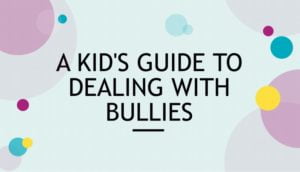For some time now, you have probably been hearing about the importance of routines and consistency for children, especially in times like these that are uncertain and stressful. And while it is true that children do better when they know what to expect and their days are as predictable as we can make them, there is another thing kids need: play time! We have talked in past posts about the importance of play in developing children’s brains, as well as how playing with your child continues to build and enrich your relationship.
Play is also an important way that children process and work through difficult or even traumatic events. Since children don’t yet know how to discuss their feelings in the same way as adults, they may draw pictures or act things out to process their experiences and emotions. They may reenact a stressful event and give it a new ending as a way to process and claim back control of a scary situation.
One of the best forms of play in which children can process stressful events (or just have fun) is unstructured play. Unstructured play means that the play does not have a script or rules, but is play that changes and can be different each time. This encourages children to use their imagination, make their own decisions and solve their own problems, which gives them a sense of control when they may be feeling uncertain or anxious.
When you allow your child to take the lead in play, you let them to choose what you are playing and go along with their ideas as their game or imaginative play moves along. This doesn’t mean that you don’t say anything. You can add to your child’s experience by asking questions about the game, or coming up with obstacles or difficulties that your child can help problem solve (“Oh no! The train track is not strong enough to handle all this treasure! What are we going to do?”). Just be thoughtful to do this in small amounts so your child continues to be guiding and leading the direction of play.
These distinctions are helpful because you are more likely to be your child’s playmate during these Covid times, and adults are more likely to naturally tend toward directing playtime with kids. It is also so important during these times of stress and uncertainty to let children lead play to work out the anxieties that they may be feeling.
How can you encourage more unstructured play time for your child? Well, first (and this may sound counterintuitive): schedule time for unstructured play! Even if it is just 15 minutes every day. Like we said above, children need both consistent, predictable daily routines, and they need to feel a sense of control in their life.
Try to have materials available that may encourage less structured play. For example, specific superhero dolls often come with their own storyline children may follow, whereas a recycled box could be any number of things! The nice thing is that the materials that encourage unstructured, imaginative play are not the brand name expensive toys. Leftover pieces of scrap wood, sticks and rocks, old sheets and blankets, recycled materials like cereal boxes, egg cartons, and old clothes, purses, scarves, etc. all make great unstructured play props.
Arts and crafts time can also be a great time for child directed expression and sensory play. Providing blank pieces of paper, (I’m currently using all the extra brown paper bags from grocery shopping to paint on), clay and other modeling materials, the recycled materials mentioned above, beads, leaves, paint, and glue to put it all together.
Outside of play time, you can still help children feel like they have some control by giving them more choices within the expectations or routine, “do you want the blue popsicle or the red? Which book should we read first? Do you want to paint or color?”
Including plenty of time in children’s days where they are making the decisions and in control of their destiny (even if it is just in their imagination) can help them get through uncertain times.
[divider type=”standard” text=”Go to top” full_width=”no” width=”1/1″ el_position=”first last”]
Text: © Kids In Transition to School 2020
Image: © Olena Yakobchuk | Dreamstime.com





